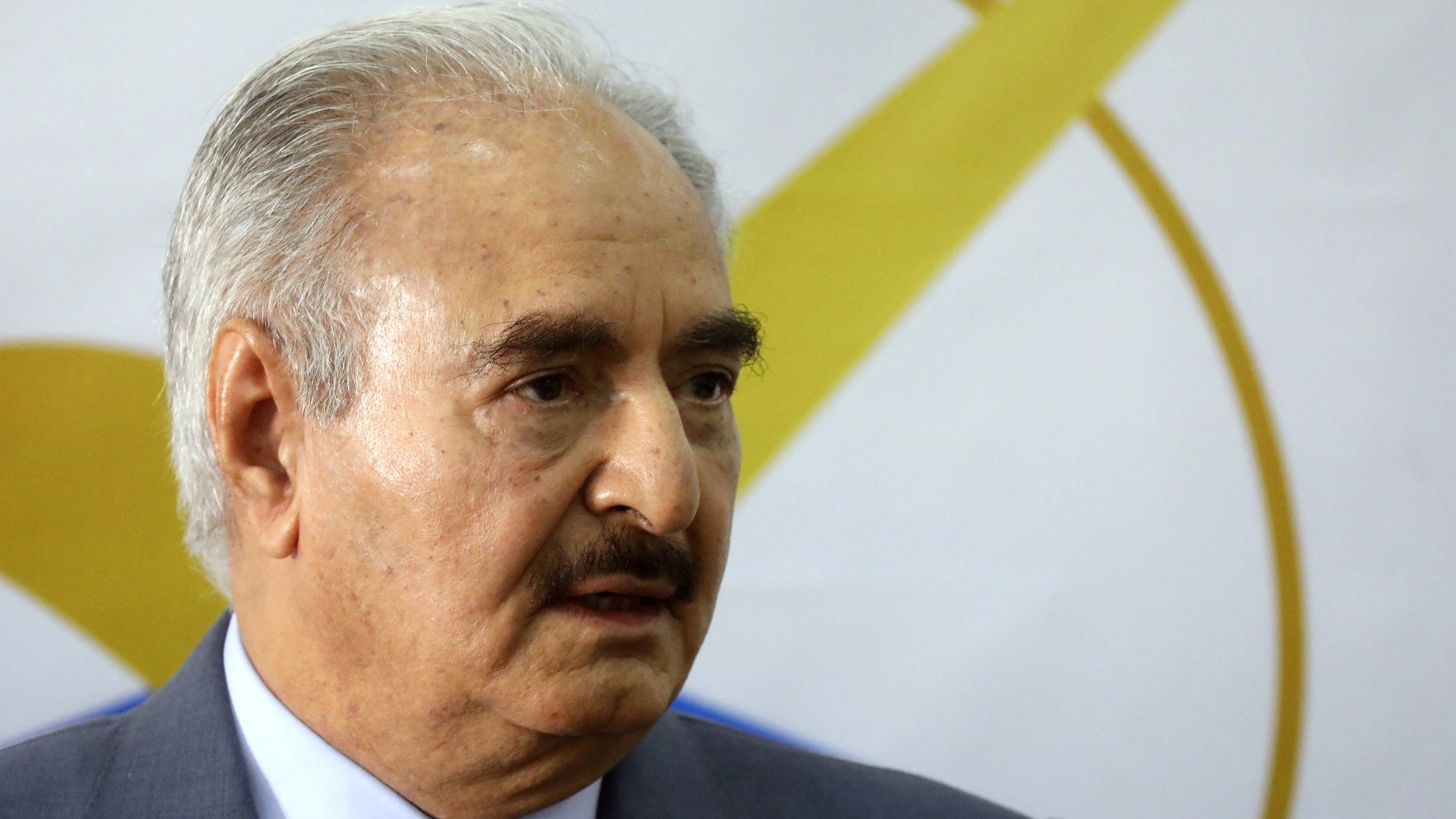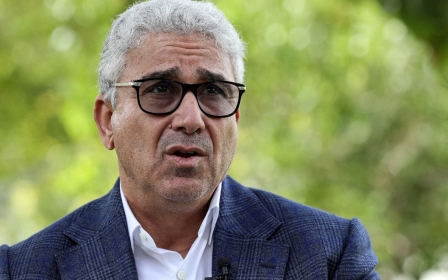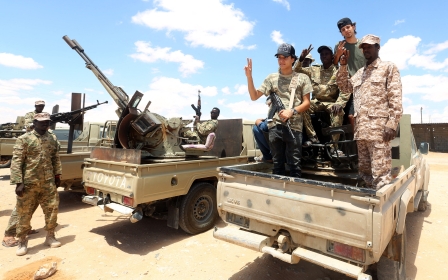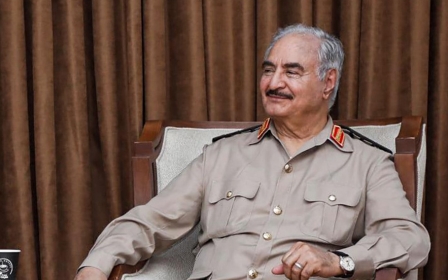Libya's Khalifa Haftar a no-show for US deposition in war crimes lawsuit

Libyan military commander Khalifa Haftar failed to appear for a deposition in a US federal court where he is at the centre of a lawsuit accusing him of war crimes and extrajudicial killings.
Haftar was scheduled to appear on Monday in a long-sought video deposition where he was going to be asked about his alleged role in the extrajudicial killings and torture of Libyan civilians in the country's decade-long civil war.
He has been named in multiple civil lawsuits in the US District Court in Alexandria, Virginia. The commander, who has been a Virginia resident for decades, tried to have the lawsuits tossed out under the claim of immunity as head of state. However, his attempts have been unsuccessful.
Haftar's failure to appear on Monday was confirmed to Middle East Eye by Mark Zaid, a lawyer representing one group of the plaintiffs.
The deposition was supposed to serve as an opportunity for lawyers in all three cases to question Haftar and gather information relevant to their cases.
Zaid said the no-show was unacceptable and that the lawyers would seek a default judgement against him for failing to show up.
"The deposition had been scheduled a month ahead of time so there was no viable excuse that he did not ensure he was available," he told MEE.
"Given his failure to appear, we will be requesting the Court enter an Order of default that holds him liable."
Last year, the case was put on pause after US District Judge Leonie Brinkema said there was a chance the lawsuit would have helped interfere with elections scheduled at the time. However, after elections were delayed indefinitely, Brinkema reinstated the lawsuits.
Haftar's lawyer in the US, Jesse Binnall, did not immediately respond to MEE's request for comment on Tuesday.
Haftar's US properties
In 2019, Haftar led a failed assault on Libya's internationally recognised government in Tripoli but was pushed back following a military intervention by Turkey.
Following a ceasefire in October 2020 and the establishment of a unity government, the country was headed towards elections in December 2021. However, the polls were postponed and Libya continues to remain divided politically.
The lawsuits against Haftar were first filed in September 2020 by two relatives of the military commander's alleged victims, Ali Abdalla Hamza and Salimah Jibreel, who say that Haftar and his self-styled Libyan National Army (LNA) are responsible for the deaths of their family members.
The lawsuit filed by Hamza and Jibreel focuses on the LNA's siege of Benghazi in 2016, particularly the district of Ganfouda, where repeated air strikes by Haftar's forces pinned down hundreds of civilians.
Hamza says he had to flee his home in the area after it was bombarded and looted. His wife, two brothers and three sisters took shelter in an unoccupied apartment in a Ganfouda suburb where they ate tree bark and grass and drank water from puddles in order to survive.
The plaintiffs sued Haftar under the Torture Victim Protection Act of 1991, which allows non-US citizens to seek compensation from individuals who, acting in an official capacity for any foreign nation, allegedly committed torture or extrajudicial killing.
According to a previous Wall Street Journal report, Haftar has had extensive property holdings in Virginia, including a 5,600 square-foot house in Great Falls, Fairfax County, valued at nearly $2.5m; a condo in Falls Church, Virginia; a three-bedroom ranch; and a $700,000 horse farm in the small town of Boyce.
Middle East Eye delivers independent and unrivalled coverage and analysis of the Middle East, North Africa and beyond. To learn more about republishing this content and the associated fees, please fill out this form. More about MEE can be found here.





